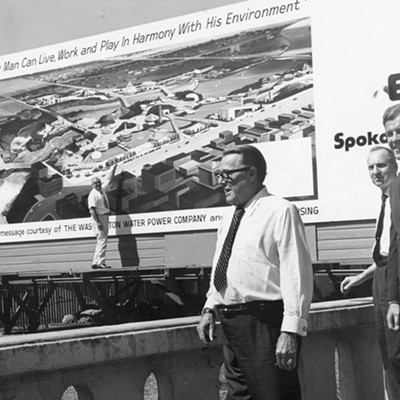
Back in January 2008, a small, independent computer game developer, Tales of Game’s Studios released a very weird videogame.
Barkley, Shut Up and Jam: Gaiden, Chapter 1 of the Hoopz Barkley SaGa was made in the vein of the early Final Fantasy games, except that you played as basketball superstar Charles Barkley in a post-apocalyptic world where B-ball has been outlawed and the painful events of Space Jam linger.
This year, the small team of developers went to Kickstarter, a fundraising website, asking the collective Internet for $35,000 to make an even more bizarre and ambitious sequel.
The collective Internet, however, had better ideas: By the time the fundraising period ended this December, online donors forked over more than $120,000.
“The money is going to hit us over the next few days,” says Liam Raum, producer of the game. “There’s not really much to it. It just gets dumped into my account, and then we just go for it.”
That simple.
It’s called crowdfunding — and it’s easy to understand all the hype. Tim Schafer, the quirky developer behind silly ’90s point-and-click games like Monkey Island, asked for $400,000 to make a new game and got $3.3 million. The formerly-from-Spokane duo behind web-comic Penny Arcade raised $528,000 to turn their site ad-free.
For the creators, it’s a secret passageway past penny-counting publishers, past equity-hungry investors, past recession-weary loan officers. Artists can take their pitch to directly to The People. And the good people of the Internet — land of a million weird niches — will donate to practically any old weird cause.
But all that promise comes laden with unexplored risk. The satirical Onion News Network jokes of “an insidious new Internet scam called Kickstarter has already conned thousands of unsuspecting victims into donating money to so called ‘important personal projects’ that in actuality are just terrible useless garbage.”
Crowdfunding hovers in this uneasy area between charity and investment. “It gets all the way to the word ‘investment’ without actually covering it,” Raum says.
Real investors would get an actual percentage of the company — if the company succeeds, they make more money. Most crowdfunding projects, however, just offer “rewards” for donating certain amounts: T-shirts, posters, an in-person lunch with the creator and usually a copy of any product being created.
“Kickstarter does not guarantee projects or investigate a creator’s ability to complete their project,” the site’s FAQ says in the ironically titled “Accountability” section.
“The environment is there for a class-action lawsuit,” says Raum of projects failing to fulfill their promises. “There should be some sort of accountability.” Until then, he suggests that people could probably do with pledging a little more conservatively.
In two years in Spokane, 23 projects have been successfully funded on Kickstarter, including albums, books, clothing lines, graphic novels, a TV show parody and even a bakery selling beer cupcakes.
Two local musicians, Karli and Caleb Ingersoll, used Indiegogo, another crowdfunding site, to raise money to create the Bartlett, an all-ages music venue. After a one-month campaign, the Bartlett fundraiser had raised a total of $21,000 from 230 donors.
Caleb Ingersoll, in a phone call last week, explained why he didn’t just get a loan: “About a year ago, we talked to some banks about it. And they basically were just like, ‘There’s no way.’ We’re young, we’ve never been business owners before.” They had experience working for that sort of business, but “we didn’t have startup capital, we didn’t have any downpayment, really. … We’re young, and we can’t wait 10 years to save up the kind of money to make it happen,” he says.
Thanks to crowdfunding, however, they’ve now got cash — and recognition. “Now we have something behind our words and our dream,” Ingersoll says. He says real estate brokers and developers have begun to treat them more seriously.
Yet, there’s a reason why banks don’t usually loan to would-be business owners armed just with hope. Businesses often fail. In Spokane, all-ages venues in particular haven’t always had the best luck.
That’s the trick: As crowdfunding becomes more pervasive, it might take a philosophical shift in how we view spending money. For crowdfunding to really work, people have to learn a third mindset, separate from I-better-get-my-money’s-worth capitalism or my-donation-better-help-other-people charity. It’s got to be about charging recklessly ahead in the pursuit of other people’s dreams — damn all the scams, naiveté and failure.
That may be easier for the young, always a bit better at freely parting with their money. “The older generations look at crowdfunding almost as if it’s a cop out,” Ingersoll says. “The younger generations understand.”





















